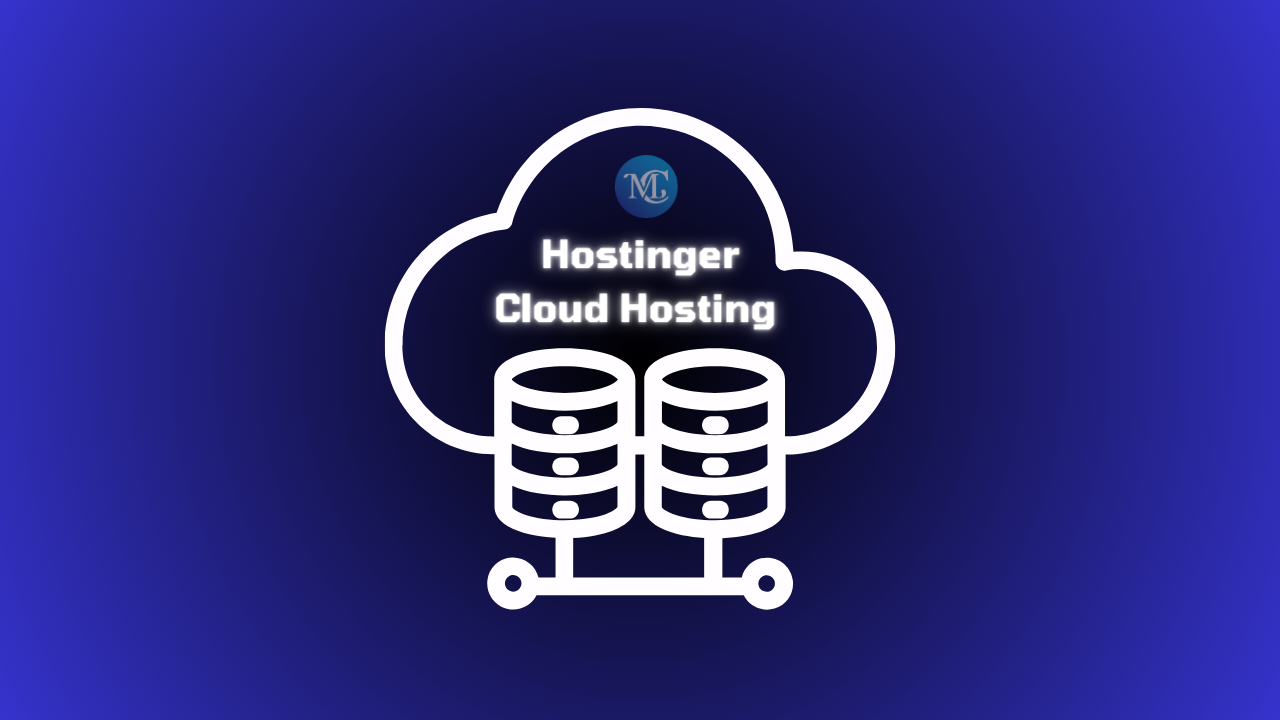Hostinger Cloud Hosting: A Complete Guide

Are you ready to know everything about Hostinger Cloud Hosting?
With so many Hosting platforms available today, finding the one best is very difficult. Before choosing the right hosting, focus on features like fast loading, free, secure socket layer, and uptime guarantees. Here you will find the complete guide to the best Hosting services.
If you want to create a secure, fast, huge website, Hostinger Cloud Hosting is a good choice. Hostinger is the biggest pool for stable performance and fast content delivery for a user experience.
Best WordPress Server Hosting (2024)
In this article, we explain the complete guide about Hostinger Cloud Hosting, like its work, comparison, pros and cons, and features. We explain how Hostinger Cloud Hosting is the right choice.
What is Cloud Hosting?
Cloud Hosting is a web hosting service that ensures high uptime and fast performance for your website. It kept the power of visualization. Cloud hosting is the virtual and physical servers that doing the greater scalability and flexibility to make changes quickly.
How Does Cloud Hosting Work?
Hostinger Cloud Hosting works differently from other web hosting. Hostinger Cloud hosting allows you to host multiple websites on a single server.
Cloud hosting is a type of web hosting that uses multiple servers to balance the load and maximize uptime. Unlike traditional hosting that relies on a single server, cloud hosting taps into a network of virtual and physical servers, offering greater flexibility, scalability, and reliability. Here’s a breakdown of how cloud hosting works:
Key Components of Cloud Hosting
- Virtualization:
- Virtual Machines (VMs): Cloud hosting uses virtualization technology to create multiple virtual servers on a single physical server. Each VM operates independently and can run its own operating system and applications.
- Hypervisor: This software layer enables the creation and management of VMs. It allocates resources from the physical server to the virtual machines as needed.
- Resource Pooling:
- Server Clusters: Cloud hosting involves multiple servers working together as a cluster. These servers pool their resources (CPU, memory, storage) to provide high performance and redundancy.
- Load Balancing: The load balancer distributes incoming traffic across multiple servers to ensure no single server becomes overwhelmed. This helps maintain high availability and performance.
- Scalability:
- Elasticity: Cloud hosting can dynamically allocate resources based on demand. If your website experiences a surge in traffic, the cloud infrastructure can scale up resources to handle the load and scale down when traffic decreases.
- Auto-scaling: Many cloud hosting services offer auto-scaling features that automatically adjust resources in real time based on predefined rules or current load.
- Redundancy and Failover:
- Redundant Storage: Data is often stored redundantly across multiple servers to ensure availability even if one server fails.
- Failover Mechanisms: If a server or component fails, the cloud hosting system can automatically switch to a backup server or component without downtime.
- Managed Services:
- Monitoring and Maintenance: Cloud providers often offer managed services that include monitoring, maintenance, and security updates, allowing users to focus on their applications rather than infrastructure management.
- Support and Troubleshooting: 24/7 support is typically available to help resolve any issues that arise.
How to Get Started with Cloud Hosting
- Choose a Cloud Hosting Provider: Select a provider based on your needs, budget, and the features they offer.
- Set Up an Account: Sign up for an account with the chosen provider.
- Deploy Your Application: Use the provider’s tools and interfaces to deploy your website or application on their cloud infrastructure.
- Configure and Manage Resources: Set up resource allocation, load balancing, security measures, and scaling policies as needed.
- Monitor Performance: Continuously monitor the performance and adjust configurations to optimize the system.
By leveraging the power of cloud hosting, businesses can ensure high availability, scalability, and cost-efficiency for their web applications and services.
Benefits of Hostinger Cloud Hosting
Hostinger Cloud Hosting offers several benefits, making it an attractive option for individuals and businesses looking for reliable and efficient web hosting services. Here are some key advantages:
- Hostinger’s cloud hosting uses high-performance servers, providing faster website load times.
- It leverages the latest technologies like LiteSpeed web server and integrated caching to enhance speed.
- Cloud hosting allows for easy scaling of resources such as CPU, RAM, and storage.
- As your website grows, you can adjust resources without experiencing downtime.
- Hostinger offers a 99.9% uptime guarantee, ensuring that your website remains accessible.
- The cloud infrastructure provides redundancy, minimizing the risk of downtime due to hardware failures.
- Hostinger’s custom control panel (hPanel) is intuitive and easy to use, even for beginners.
- It includes one-click installations, domain management, and easy file management.
- Hostinger provides free SSL certificates, daily backups, and advanced security features to protect your website from threats.
- DDoS protection, automated backups, and server monitoring enhance overall security.
- Unlike shared hosting, cloud hosting offers dedicated resources, ensuring consistent performance regardless of other users’ activities.
- This is beneficial for high-traffic websites that require stable performance.
- Hostinger has multiple data centers worldwide, allowing you to choose a server location closest to your audience.
- This can reduce latency and improve website speed for your visitors.
- Hostinger’s cloud hosting plans are competitively priced, offering a balance between performance and affordability.
- You get premium features without a significant price tag compared to other hosting providers.
- Hostinger provides round-the-clock customer support via live chat, email, and an extensive knowledge base.
- The support team is knowledgeable and responsive, helping to resolve issues quickly.
- It supports multiple programming languages (PHP, Node.js, Python) and databases (MySQL, PostgreSQL).
- SSH access, Git integration, and other developer tools are available for advanced users.
These benefits make Hostinger Cloud Hosting a robust and versatile option for hosting a wide range of websites, from small personal blogs to large e-commerce platforms.
Hostinger Cloud Hosting Price plan
Hostinger offers three cloud hosting plans designed to meet different needs and budgets, ranging from $9.99/month to $29.99/month. Each plan leverages the latest cloud computing technology, such as CloudLinux with LVE containers, to ensure optimal performance and reliability. With a 99.9% uptime guarantee and a global chain of data centers, your site will always be up and running smoothly.
Here’s a detailed comparison of Hostinger’s cloud hosting plans:
| Features | Startup | Professional | Enterprise |
|---|---|---|---|
| Pricing | Starts at $9.99/month | Starts at $14.99/month | Starts at $29.99/month |
| Number of websites | 300 | 300 | 300 |
| Number of email accounts | 100 | 100 | 100 |
| Memory | 3 GB | 6 GB | 12 GB |
| SSD storage | 200 GB | 250 GB | 300 GB |
| Number of CPU cores | 2 | 4 | 6 |
| Bandwidth | Unlimited | Unlimited | Unlimited |
Additional Features:
- 30-day money-back guarantee: All plans include a 30-day money-back guarantee, giving you peace of mind during the trial period.
- Global data centers: Hostinger’s global data centers ensure faster load times and better performance for your website visitors.
Frequently Asked Questions
What services does Hostinger offer?
Hostinger offers shared hosting, cloud hosting, VPS hosting, WordPress hosting, email hosting, domain registration, a website builder, and SSL certificates.
Does Hostinger Cloud support shared hosting?
No, Hostinger Cloud and shared hosting are separate services; cloud hosting offers dedicated resources, while shared hosting involves multiple websites sharing server resources.
How much does Hostinger cost?
Hostinger’s plans range from $1.99/month for shared hosting to $29.99/month for advanced cloud hosting.


